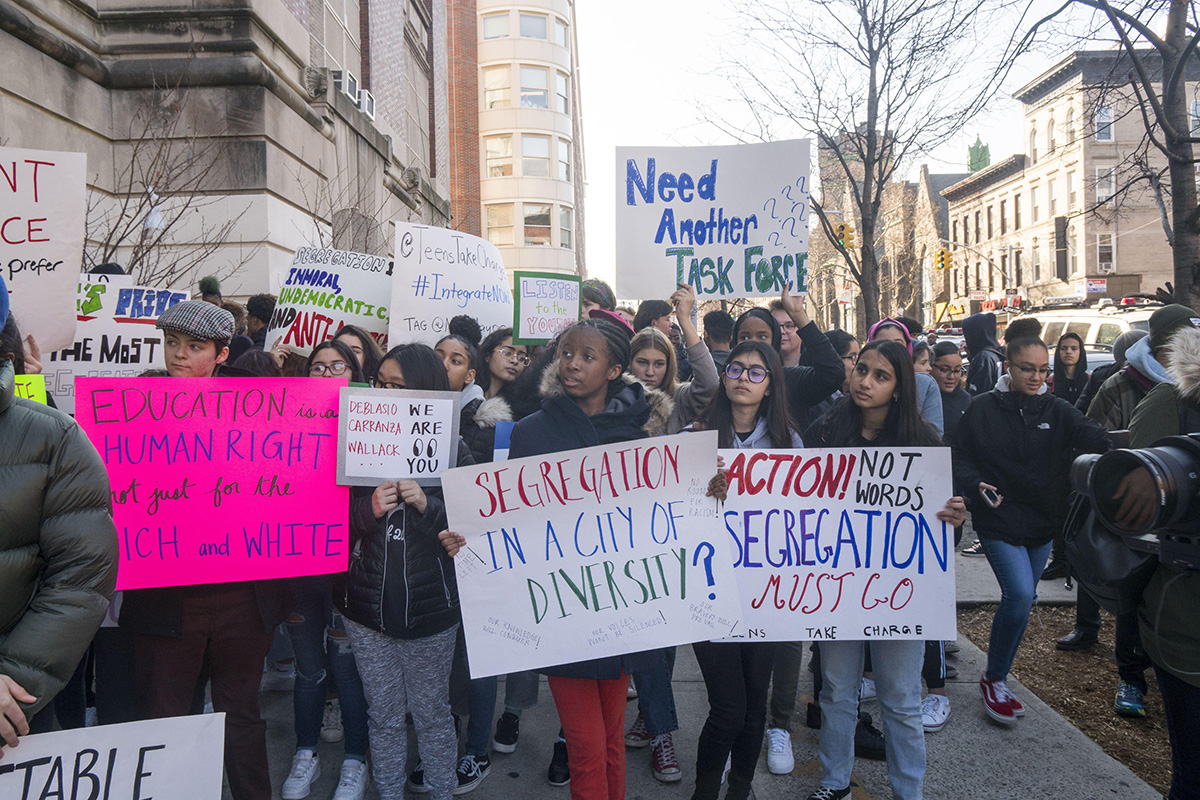Has education in America remained racially segregated because of white people who talk a good game, but don’t walk the walk?
That’s the question The New York Times poses to five commentators on race and education — including Teachers College’s Sonya Douglass Horsford, Associate Professor of Education Leadership — in a roundtable-in-print headlined “How White Progressives Undermine School Integration.”
The answer, by and large, is yes — but Horsford, founding Director of TC’s Black Education Research Collective and Co-Director of the College Urban Education Leaders Program, adds a twist in a point she has made elsewhere: Many Black people have given up on “separate” and are much more focused on “equal” — and “safe.”

“DIFFERENT CONVERSATION” Horsford argues that Black families today are more concerned about equality and safety in education than integration.
“I think the integration conversation is more of a conversation that’s happening among those who enjoy some level of privilege — nice white parents,” she says. “Where is the groundswell of pro-integration efforts and support led by Black and other disenfranchised communities? I just don’t see it coming from the families that integration is supposed to benefit.
“Integration is no longer the most important issue for Black families. Today, Black parents are worried about whether or not their children will be safe — whether because of COVID or violence on campuses or hate crimes or police brutality. In this moment, talking about integration feels like such a distraction.”
The Times roundtable was inspired by “Nice White Parents,” a new podcast from the paper and Serial Productions. The other commentators in the roundtable are Dana Goldstein, a national education correspondent at the Times; Tiffani Torres, a rising college freshman at Georgetown University and a recent graduate of Pace High School in Manhattan; Richard Buery, President of Achievement First, a network of charter schools in the Northeast; and Chana Joffe-Walt, a reporter and producer at This American Life, and the host of “Nice White Parents.”
Horsford’s perspective is particularly poignant given that she and others attest to the benefits of genuine integration.
Integration is no longer the most important issue for Black families. Today, Black parents are worried about whether or not their children will be safe — whether because of COVID or violence on campuses or hate crimes or police brutality. In this moment, talking about integration feels like such a distraction.
—Sonya Douglass Horsford
Goldstein, who is white, cites sociological research on the benefit to white and middle-class students of attending schools that are more racially and economically diverse. “It appears to have a real long-term impact on their social beliefs, their tolerance toward diversity, their willingness to live in more diverse neighborhoods and their excitement about sending their own children to integrated schools,” she says. She calls a desegregation program she herself attended in Ossining, New York, “one of the most positive and powerful aspects of my life.”
Horsford, too, was part of a school integration effort when she was growing up in Las Vegas. That experience required the area’s small population of Black students to be bused to other districts, but she didn’t consider that a negative.
“I had a diverse group of friends, based on where I stayed,” she says. “I had exposure and experiences with individuals whose background was different than mine. We also shared a lot of things in common.”
But the problem today, she concludes, is that “rather than focus on the things that we do share in common, we are so obsessed and focused on the things that differentiate us.”
